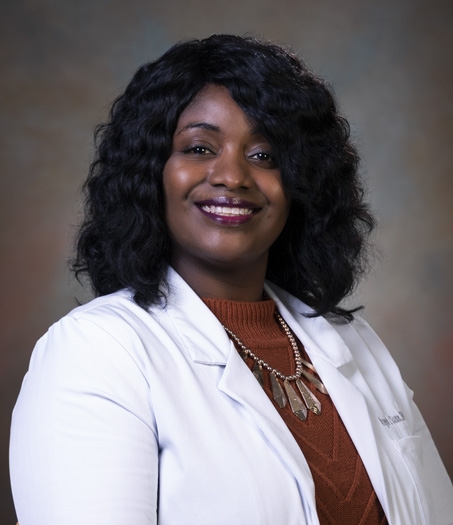Diabetes and What it Means to You

Angela Saxon, DNP
McLeod Primary and Chronic Care Specialists
More than 34 million people in the United States have diabetes, according to the American Diabetes Association. The Centers for Disease Control (CDC) also reports that South Carolina is sixth in the nation for diabetes cases.
Diabetes – How Do We Define It?
Diabetes is a condition in which a person has chronically raised blood glucose (sugar). It is caused by an incorrect level of the hormone insulin, which is produced by the pancreas. Diabetes occurs when the body is unable to convert sugar into energy because of its inability to produce insulin or to use insulin properly. The body requires glucose for energy but glucose cannot get into the cells of the body without insulin.
Symptoms of Diabetes include:
- Excessive thirst
- Frequent urination
- Blurred vision
- Weight loss
- Increased hunger
- Sores that are slow to heal
How is Diabetes Diagnosed?
- Fasting Blood Glucose greater than or equal to 126 mg/dL
- Random Glucose greater than 200 mg/dL in people with symptoms of diabetes (excessive thirst and hunger; frequent urination, tiredness)
Management of Diabetes:
The two most common types of diabetes are juvenile-onset diabetes, also called insulin-dependent diabetes or type 1 diabetes; and adult-onset diabetes, also called noninsulin-dependent or type 2 diabetes.
A person with type 1 diabetes requires insulin by injection for the rest of his or her life, because the pancreas has stopped making insulin. Type 1 usually develops in children, but it can happen at any age. A person with type 2 diabetes still produces insulin. The pancreas may not produce enough insulin, the cells in the body may not use the insulin, or the pancreas may not make the insulin at the right time. This type of diabetes usually found in people who are overweight, perform little or no exercise, and/or have a family history of type 2 diabetes. Type 2 usually occurs in people of the age of 40, but is not being seen in more children, teenagers and young adults. People with type 2 diabetes may require medication, insulin or a combination of both to control their blood sugar.
Preventing Complications:
Treating diabetes is extremely important in the prevention of complications that may be a result of the disease. Diabetes complications include heart disease, stroke, high blood pressure, blindness, kidney disease, nervous system disease, amputations, dental disease and pregnancy complications. Many complications of diabetes can be prevented by monitoring your blood sugar levels, maintaining normal blood pressure and cholesterol levels, seeking treatment of early kidney disease, having annual eye exams, continual evaluation of nerve function and proper diabetes education. People with diabetes can lead full and healthy lives if the disorder is treated and managed correctly. If you experience symptoms of diabetes, talk to your primary care provider as soon as possible.
Advanced Practitioner Angela Saxon, DNP, FNP-BC provides care for patients of all ages at McLeod Primary and Chronic Care Specialists in Florence. New patients are welcome, and same or next day appointments are available. To schedule an appointment, call (843) 777-7490.
-
McLEOD REGIONAL MEDICAL CENTER FLORENCE
843-777-2000 -
McLEOD DARLINGTON
843-777-1100 -
McLEOD DILLON
843-774-4111 -
McLEOD LORIS
843-716-7000 -
McLEOD SEACOAST
843-390-8100 -
McLEOD CHERAW
843-537-7881 -
McLEOD CLARENDON
803-433-3000



-
McLEOD REGIONAL MEDICAL CENTER FLORENCE
843-777-2000 -
McLEOD DARLINGTON
843-777-1100 -
McLEOD DILLON
843-774-4111 -
McLEOD LORIS
843-716-7000 -
McLEOD SEACOAST
843-390-8100 -
McLEOD CHERAW
843-537-7881 -
McLEOD CLARENDON
803-433-3000
 Find a Doctor
Find a Doctor  Locations
Locations  Services
Services